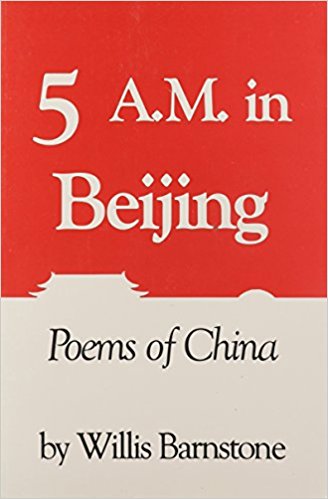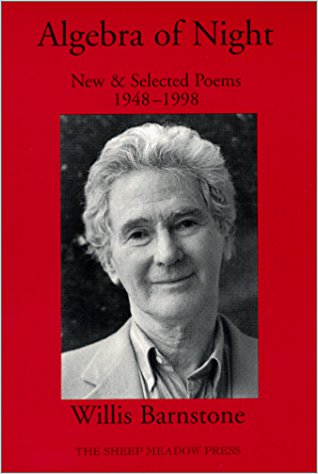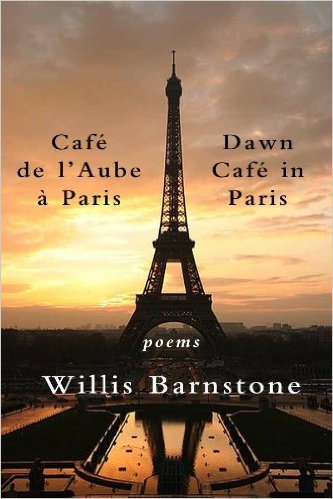WILLIS BARNSTONE was born in Lewiston, Maine, and educated at Bowdoin, Columbia, and Yale. He taught in Greece at the end of the civil war (1949-51), in Buenos Aires during the Dirty War, and during the Cultural Revolution went to China, where he was later a Fulbright Professor of American Literature at Beijing Foreign Studies University (1984-1985). His publications include The Other Bible, a memoir biography With Borges on an Ordinary Evening in Buenos Aires, and To Touch the Sky. A Guggenheim Fellow and Pulitzer Prize finalist in poetry, Barnstone is Distinguished Professor at Indiana University.
“Willis Barnstone has long been a fount of poetic wonder and as his output has grown, it has become a torrent. And not only in English. No one language could contain him.”—Peter Monaghan, Chronicle of Higher Education
“This book is a phenomenal three-headed creature that writes, translates, and experiences itself simultaneously. To read these poems written in French by a young man in love with everything, but Paris and her poets above all, is to read a novel in verse of the postwar years of the mid-century, and then to read it written again in English by the older poet in love with the younger poet in love with everything French is a profound experience. To accompany young Guillaume Barnstone in the company of the older, experienced, and erudite Willis Barnstone, is a true time-travel experience. This profound and generous poet, who has lived and written worlds, creates yet another form of creative existence in this volume, a manual of self-renewal through language and poetry.”—Andrei Codrescu
“I wish Willis would stop stealing my French poems. He’s taken all the languages. It's easy if you have ten tongues. I'll show him, that Baudelairian, that maitre.”—Gerald Stern
“English and French may not, as Wallace Stevens once averred, ‘constitute a single language,’ but they are without doubt two languages madly in love. With this beautiful hybrid text, Willis Barnstone illuminates and exalts this love in transformational ardor. And I use the ardor with uttermost emphasis, because it is a word in which Baudelaire, Apollinaire and Barnstone splendidly convene––in ecstasy, in spleen, and in ‘the march of dawn.’ Barnstone’s newest book is an ardent masterpiece of true tendresse.”—Donald Revell
“All of Willis Barnstone’s students and admirers, and I consider myself proud to be among them, have suspected him of having magical powers. I believe he has a billion ifrits [strong spirits] at his service who can build and unbuild the Tower of Babel in the duration of a wink. With this remarkable, moving, highly entertaining, and utterly unique self-translation, we now have further proof that Barnstone ranks high among the wizards of song. Resonant with the poet’s passion for a great city, Barnstone’s Café de l’Aube à Paris tests the veracity of memory with the facts of the poet’s time in two languages, and he, in turn arrives at dual, inseparable truths, united by his generous heart’s reason and harmonized with diverse rhymes. Habibi [my beloved], Maestro Willis, I salute you again!”—Khaled Mattawa
“Willis Barnstone has been appointed a special angel to bring ‘the other’ to our attention, to show how it is done. He illuminates the spirit for us and he clarifies the unclarifiable . . . I think he does it by beating his wings.”—Gerald Stern
1197 Bulls Head Road
Clinton Corners, NY, 12514
18452665638
P.O. Box 84 - Rhinebeck, NY - 12572



